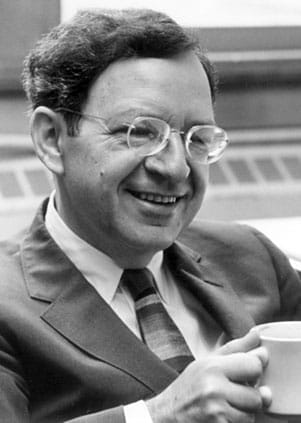 Plucked from the U.S. Department of Commerce, Professor Irwin Friend was an intellectual powerhouse whose path-breaking research of emerging financial institutions brought new influence to Wharton’s Finance Department—as well as industry-wide reforms.
Plucked from the U.S. Department of Commerce, Professor Irwin Friend was an intellectual powerhouse whose path-breaking research of emerging financial institutions brought new influence to Wharton’s Finance Department—as well as industry-wide reforms.
As chief of Commerce’s Business Structure Division from 1947 to 1953, Friend introduced the concept of collecting data on expectations of plant and equipment expenditures. In the 1950s and 1960s, as head of Wharton’s Securities Research Unit (SRU), Friend examined the OTC market for corporate equity, the savings and loan industry, the mutual fund industry, and the investment banking industry, scholarship that was widely used by Congressional committees, Federal and state regulatory agencies, academic groups, and securities organizations.
His early 1950s study of the OTC market developed the first comprehensive data on the structure of that market and provided the first serious estimates of the number of participants, volume of transactions, size, and variability of bid-ask spreads, and the relative importance of the market in distributing new issues of small firms.
Friend’s 1962 book, A Study of Mutual Funds, anticipated much of the later theory and empirical work of efficient markets. He was the first to question the commonly held view that mutual funds perform better than an unmanaged portfolio of individual stocks. The study also suggested that a conflict of interest existed between a mutual fund’s shareholders and the fund’s investment advisor. He wrote that increased sales “automatically produce increases in the dollar amounts of management fees … and … brokerage business to distribute,” with no benefit to investors. The study, prepared for the Securities and Exchange Commission and the most comprehensive report in decades, became a precursor to the rise in index funds—and won wide recognition that led to industry reforms.

























